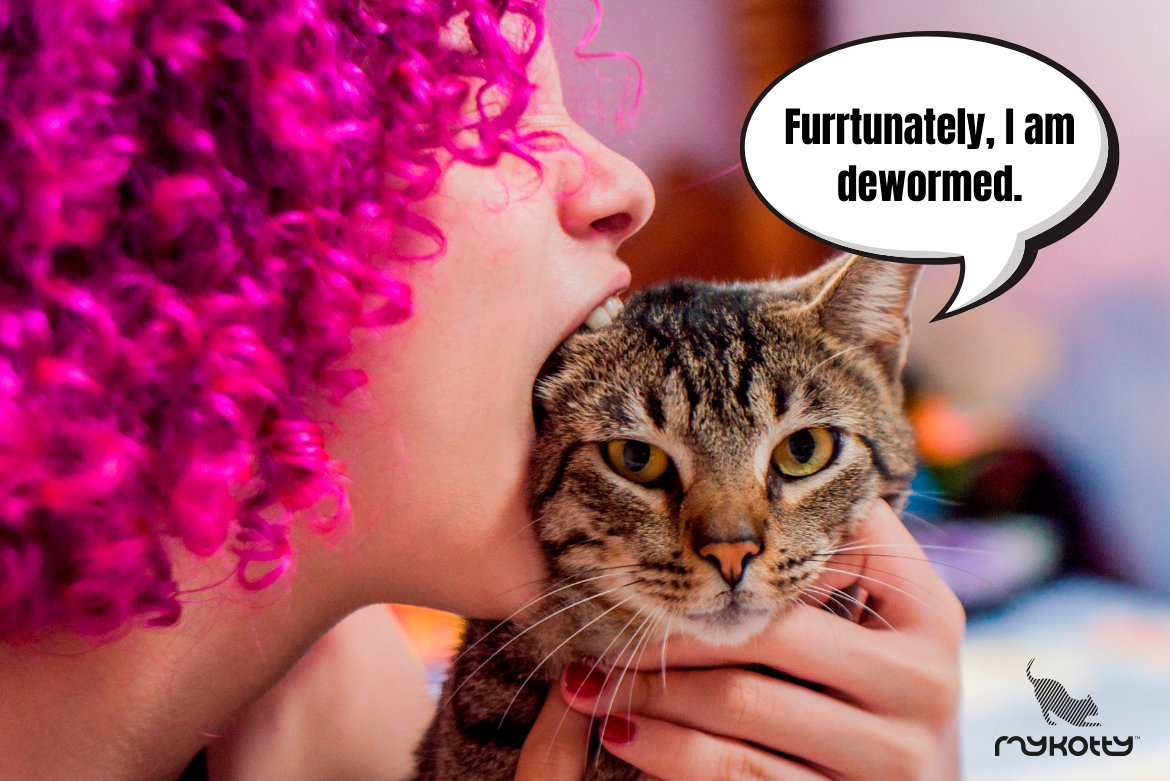Worms in a cat are a common problem, but proper prophylaxis allows you to keep the cat healthy and parasites away from our fur. But what if we lose our vigilance for a moment and the cat came back from the walk with the uninvited guests? And is there a real danger then that the cat intruder will transfer to the human? Keep reading to find out.
Cat worms – common problem
Cat and worm duo is not as rare as we want to. Especially when the pet is outgoing, the risk of infection with the parasite is high and it’s worth having this probability in the back of mind, even if we properly care for cat hygiene. Furry can become infected in many ways, the most common are:
- drinking contaminated water from open reservoirs, puddles,
- eating raw meat, contaminated with parasites,
- drinking infected breast milk,
- contact with faeces in which there are parasites,
- contact with another animal that has parasites,
- having fleas that transmit certain parasites (e.g. tapeworms).
Keep in mind that even if you take special care of the indoor cat (the litter box is regularly cleaned, the meat is checked and tested, and the water comes only from a proven source), the pet may still have contact with worms that may appear at home, transferred from the outside, e.g. on shoes. That is why it’s so important to deworm the cat regularly and appropriate prophylaxis, mainly related to hygiene (regular cleaning of the litter box and frequent washing of hands), which reduces the risk of parasites in the cat.
Read also:
Parasites of cats
Before we answer the question contained in the title of this article, it’s good to classify the most common cat’s parasites (which we’re usually colloquially calling worms). Among them are:
- roundworms (a cat swallows their eggs by digging in the ground, drinking water from the puddle or milk from an infected mother),
- hookworms (their larvae are also found in the ground),
- tapeworms (an animal can become infected by eating infected meat, fleas also transmit this parasite),
- lamblias (a protozoan whose cysts are found in soil and infected, raw meat).
Worms – a cat’s health threat
Infection with the parasite can be dangerous for cats. There are many health consequences – from weakness and weight loss, to allergies, skin ailments, dull and weakened fur, and even diarrhea and vomiting. In order to protect the pet from unpleasant health symptoms, it’s worth taking care of prophylaxis (in accordance with the tips above), and when there’s a suspicion that your pet has worms – go to the vet for a visual inspection (it will be necessary to examine the stool to identify the parasite and determine the treatment method). Fortunately, anti-parasite treatments for cats, available in the form of tablets, gels, and pastes, are effective and safe for felines.
Should humans be afraid?
After this short but necessary introduction, we can go on to answer the key question – can the cat caretaker get infected with worms from the cat? Fortunately – there’s nothing to be afraid of, and the risk of contracting a roundworm or tapeworm is negligible (if the basic hygiene rules are followed, there’s really no need to worry!). Of course there are exceptions – if you have an outdoor cat and little children at home – be careful. Children, especially the younger ones, are often unaware of the importance of hygiene and when in contact with a cat, nothing is an obstacle for them, even putting hands in their mouths after playing with a furry. Remember about regular deworming, and there will be nothing to worry!
Would you add something to our prophylaxis, fabCats? Or maybe your cats struggled with such an intruder in the body? If so, let us (and other fabCats know in the comments!




